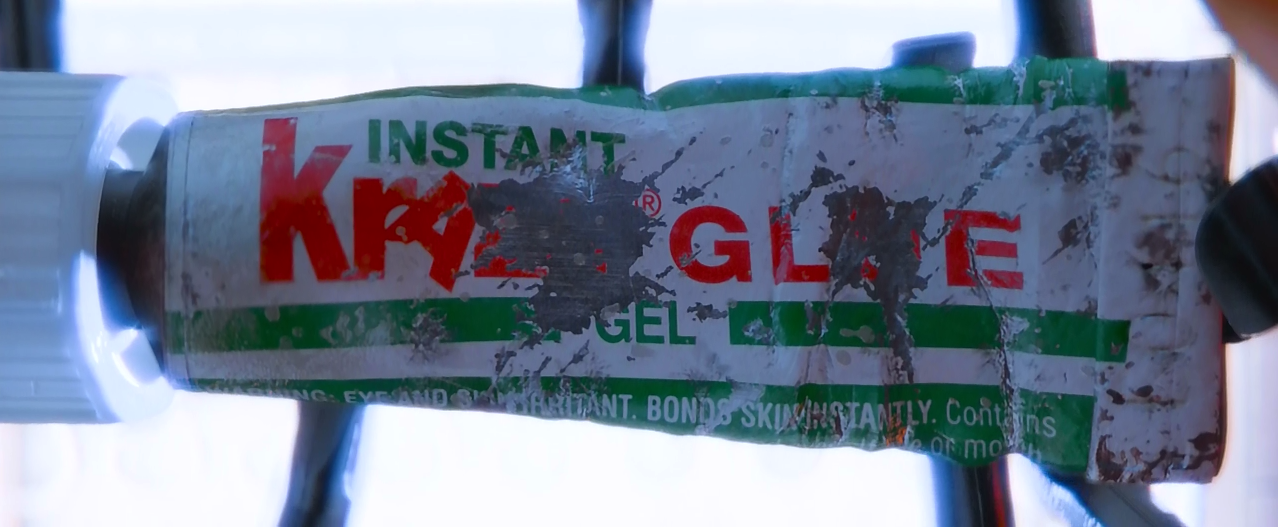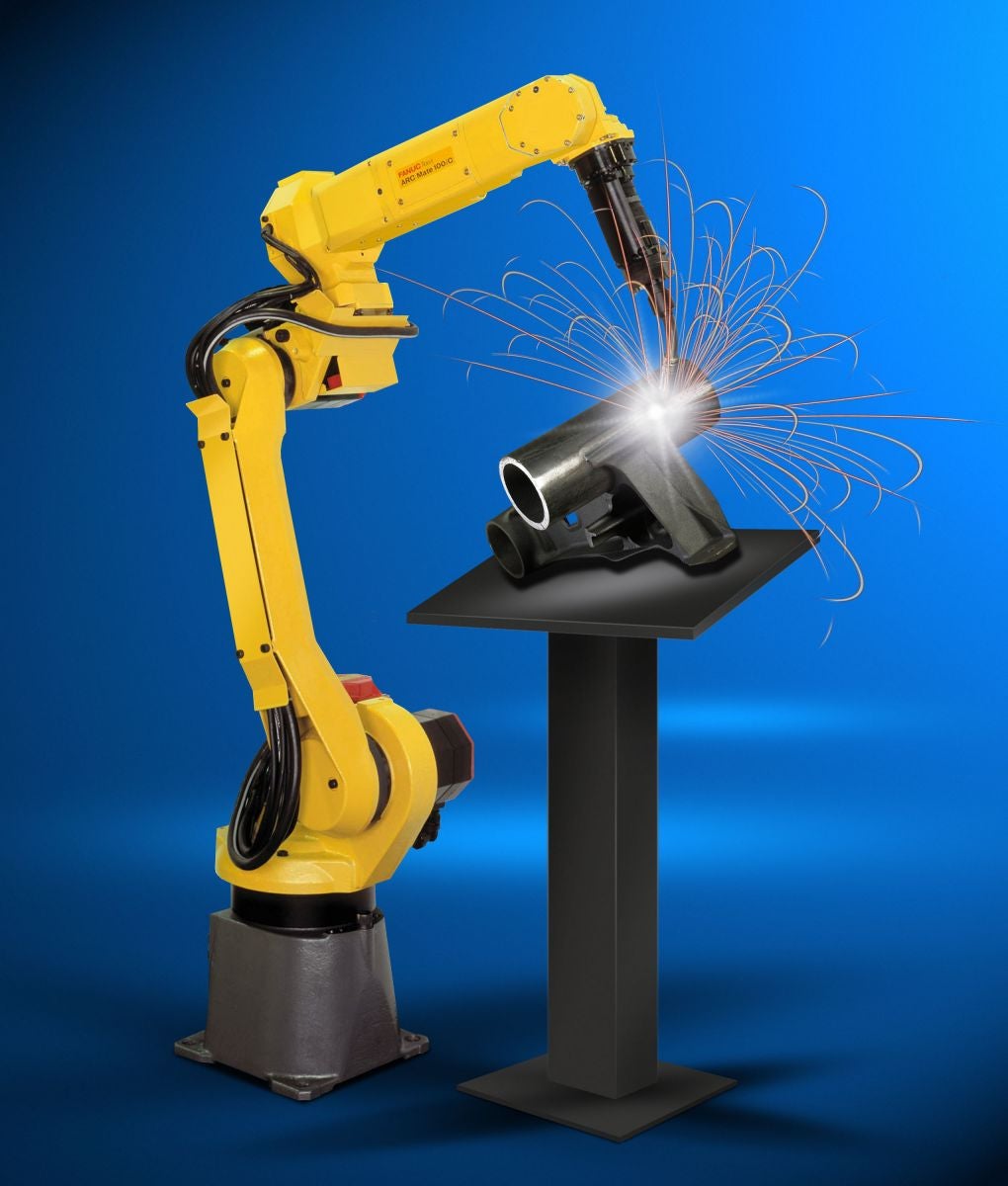 "Joshua "Dr. Science" Gilbert" (joshuagilbert)
"Joshua "Dr. Science" Gilbert" (joshuagilbert)
09/09/2014 at 13:34 • Filed to: Glue in Cars
 3
3
 12
12
 "Joshua "Dr. Science" Gilbert" (joshuagilbert)
"Joshua "Dr. Science" Gilbert" (joshuagilbert)
09/09/2014 at 13:34 • Filed to: Glue in Cars |  3 3
|  12 12 |

For the past decade, a slow change has manifested itself in modern vehicular manufacturing. (The future is knocking, GM) In a desire to simplify and cheapen the production of automobiles, manufacturers are turning to the adhesive and metallurgy industries to find new ways bonding frames and bodies on airplanes, trucks, cars, and even motorcycles.
!!! UNKNOWN CONTENT TYPE !!!
Gone are the days of nuts, bolts, screws and modular vehicle manufacturing. (18 hours ago, the Wall Street Journal wrote a really nice !!!error: Indecipherable SUB-paragraph formatting!!! on the role of industrial-grade adhesives in the automobile industry.
Pressed by the EPA and new economically-global emissions and safety standards, American manufacturers are trying to make their products more appealing by making them not only cheaper, but reducing the number of parts and footprint that a car leaves in its ultimate demise. Finally, a drive to use aluminum, a metal extremely hard to weld without damaging, has sparked a new interested in chemical bonding.
What has this done in the economy? R&D specialists have benefited from this immensely.
The global market for structural adhesives used in cars, airplanes and other vehicles should hit $2 billion this year, up from $1.5 billion a decade ago, estimates IHS senior consultant Eric Linak. He said the market is growing at between 4% and 5% a year, up from between 2% and 3% a few years ago.
The Advantages of Automobile Adhesives:
The fuselage is produced by wrapping a mold with tape "impregnated" with epoxy, and baked under pressure to bond materials. Each of the air frame's five sections uses between 40,000 and 50,000 fewer metal fasteners than conventional airliners, Boeing said. With little banging of metal, a Wichita, Kan., factory where the front section of Dreamliners are made is nearly as quiet as a library. -wsj
Vehicles that have less bolts, nuts, and traditional fasteners are physically lighter than vehicles that do. Thus, depending on the vehicle, they have the potential to burn less fuel in the long run. Extreme chemical bonding also essentially creates large physical units and eliminates friction, and thus, noise, and cabin noise. This makes cars quieter. Bolts, nuts, and screws come from somewhere, and although its doubtful their industry will be hurt by lack of automotive integration, the ghost of their outmoding looms 'round the corner. Does this necessarily make a vehicle more structurally secure, or is it hype? All cars built are expected to confirm to safety and manufacturing standards, but it hasn't been conclusively proved that glued cars can take a harder beating than say, a Volvo wagon.
R&D also paves a way for new industry surrounding vehicular adhesives, especially those that can un-applyed and re-applyed while meeting or exceeding traditional standards set by lead car-makers using welding, nuts and bolts.
The Disadvantages of Automobile Adhesives:
Risk in high-heat.
Engines get hot. Cars get hot. Few industrial glues or rubbers can handle can handle continued high heats and then lack of heat. Cracking and loss of structural integrity can occur.
Complications in body work and service.
Generations of current and past mechanics and gear heads are have grown up and trained in a world of bolts, nuts, and rivets. And the concept of gluing things is silly, especially when it comes to service and repair. What does one do after taking a glued car apart? Glue it back together. Most mechanics aren't trained to handle chemically complex and volatile adhesive, neither in application or removal. When it comes to engines, the core of the automotive industry steers away from the thought of gluing an engine block together. The technology is too new, and engines are taken apart far too often. What happens when a car needs to be recycled or dismantled? How is the glue removed? Some companies have suggested using magnetic adhesives using nanotechnology that can be undone "at the press of a button."
How does this protect consumer authority? This opens up a window to potential aggressors dissembling a moving or static vehicle without consent for malicious purposes. Wouldn't you be afraid of a magnetic beam capable of tearing apart your vehicle (although technically a ballistic missile will do the same.)

"One of the biggest challenges in the chemical industry is to manufacture an adhesive bonding that can be undone. This is because whereas car bodies made from welded steel can be easily melted down, vehicles manufactured from a mix of adhesive-bonded materials remain a problem today from the recycling point of view. What is needed is an adhesive that will lose its adhesive properties on command, as it were." - !!!error: Indecipherable SUB-paragraph formatting!!!
Welders will have to find new work.
The concept of automotive glue is a creative destruction of automotive welding. And as such, it is dangerous economically.
What does this all mean?
This means that globalization and capitalism are changing and industry to something probably unthinkable by its founders. Is it progress or a cheapening of an both an industrial art and a stalwart tool of modern life?
Looking forward to your comments.
Also check out:
!!!error: Indecipherable SUB-paragraph formatting!!!
 ly2v8-Brian
> Joshua "Dr. Science" Gilbert
ly2v8-Brian
> Joshua "Dr. Science" Gilbert
09/09/2014 at 13:48 |
|
This will require additional thought...
Initial thoughts lean towards negatives towards adhesives
-they are usually brittle
-so many high strength adhesives are toxic, even petroleum based
-this is done mainly to cut costs
But as I said I need to do more thinking on this to give a proper answer.
 IDROVEAPICKUPTRUCK
> Joshua "Dr. Science" Gilbert
IDROVEAPICKUPTRUCK
> Joshua "Dr. Science" Gilbert
09/09/2014 at 13:52 |
|
When it comes to engines, the core of the automotive industry steers away from the thought of gluing an engine block together. The technology is too new, and engines are taken apart far too often.
Wat? Who is suggesting gluing engines together? This is a bizarre statement.
Welders will have to find new work.
The concept of automotive glue is a creative destruction of automotive welding. And as such, it is dangerous economically.
Horseshit argument. The majority of automotive welding is currently done by robots. And any argument that technology should be sacrificed to "save jobs" is insane. This is in no ways "dangerous economically" Jobs lost in welding will be gained in adhesives. Plus there is currently a shortage of welders, any welder who loses his job in the auto industry could get a job tomorrow in the oil industry where I work if they're willing to move to North Dakota, Texas or Oklahoma.
Most mechanics aren't trained to handle chemically complex and volatile adhesive, neither in application or removal.
Mechanics, no. Body shop people? Absolutely. I think you are getting confused between the difference between a mechanic and a collision repair/body shop man. The use of glue/epoxy will be less foreign to a person who uses bondo basically every day.
The first half of this post was pretty good, the second half relies upon a number of false assumptions.
My take on adhesives is that they are the future, especially as we move to more carbon fiber and aluminum. It's also not just about money, enthusiasts should be excited since we've been complaining for years about how cars are getting heavier and heavier, this is a way for them to finally get lighter.
 505Turbeaux
> Joshua "Dr. Science" Gilbert
505Turbeaux
> Joshua "Dr. Science" Gilbert
09/09/2014 at 14:06 |
|
good article, thanks!

 desertdog5051
> Joshua "Dr. Science" Gilbert
desertdog5051
> Joshua "Dr. Science" Gilbert
09/09/2014 at 14:38 |
|
It's already happening. A friend saw one of these walking into the unemployment office.

 RallyWrench
> Joshua "Dr. Science" Gilbert
RallyWrench
> Joshua "Dr. Science" Gilbert
09/09/2014 at 15:13 |
|
Not many body shops are trained or equipped in proper bonding techniques. BMW, for example, uses both bonding agents & monstrous rivets to fix the front frame members to the unibody. Cars get totaled much more easily because they cost considerably more to repair. When everything is part of a crash structure & is designed to dissipate crash energy, you can't just pull out damaged metal any more.
 BZiel
> RallyWrench
BZiel
> RallyWrench
09/09/2014 at 17:46 |
|
While that may be true for old-time body shops who banged out dents and smeared Bondo, today's professional body shops are certainly ready for such repair, and are doing tens of thousands of them every day around the world.
Professional body shops are a long way from the shops of old. New shops have everything from state of he art frame machines to manufacturer-specific computer diagnostic tools, certified employees, and the newest tools and materials to do everything from epoxy panel bonding (very common now) to carbon fiber repairs.
Auto body repair is an amazingly fast growing business sector, and professional shop owners want the best trained employees in order to be able to complete repairs on today's cars. In fact, you probably wouldn't be able to get a job at a professional shop without at least an I-CAR certification or an associates degree. And colleges are taking note: http://www.fayobserver.com/news/local/cra…
Times have changed, and the truth is, within ten years, and you can bank on my words, there won't be any "old-time body shops" around who do anything but work on cars made before about 2005.
 BZiel
> ly2v8-Brian
BZiel
> ly2v8-Brian
09/09/2014 at 18:04 |
|
Let me offer this information:
1) These adhesives are not "brittle" whatsoever. In fact, most of the panel bonding adhesives used by manufacturers today create a seam that's actually stronger than the metal itself. In order to separate them, you would actually need to "rip" through all three layers of the panel, and the metal will fail before the bond between them.
2) The adhesives that Mercedes Benz (my only direct knowledge) uses are only minimally toxic when "wet" during application - it is the vapors only. After they dry, they become inert and emit no gasses of any kind.
3) It is not done to cut costs, it is done because bonding two surfaces along an entire seam length will always be stronger than using just three (or five or ten or twenty) bolts, spot weld, or rivets along the same distance. You are spreading the shear force load over a wider/longer area rather than concentration it upon x-number of points.
 RallyWrench
> BZiel
RallyWrench
> BZiel
09/09/2014 at 18:09 |
|
Well put, and I agree completely, as I deal with several because I run a Euro shop. But in my experience, there have been more who are stuck in the past and aren't prepared, and their business is hurting or has closed as a result. There are far fewer shops I'm willing to refer clients to anymore, and the good ones are doing big business. As with the deep changes in vehicle architecture, mechanicals, & electronics that have required us to update heavily in equipment and training in the last 10 years, body shops are now going through a similar massive change. It's like in 1996 when OBDII was introduced. Many older techs chose that time to exit the industy, and many shops closed because they failed to change with the times. We're in one of those times again, and it's adapt or die.
 BZiel
> RallyWrench
BZiel
> RallyWrench
09/09/2014 at 18:24 |
|
Absolutely agree with you.
I have an ownership interest in a US body shop that has been in business for 26 years, and, am getting ready to buy into a body shop group here in Germany. There is no room for "old school" thinking in this business any longer, and the technology is what is driving it.
The auto body repair business is more than than just fixing dents now, and stupid people won't make a living in it. Stability control systems, driving mode selection systems, parking assist, cameras, HUD's, these are all part of crash repair now, and there is money to be made in this for those who are smart enough to know how to do these things for customers.
We are way beyond OBDII territory in terms whats going to happen in the next 10 years.
 ly2v8-Brian
> BZiel
ly2v8-Brian
> BZiel
09/09/2014 at 19:08 |
|
Just personal experience with adhesives in other areas (like with bonding petroleum based rubbers). As I said I was going to look into it and those were initial thoughts. Thinking about it since I've changed my own opinion. But you're input is valued, thank you.
 BZiel
> ly2v8-Brian
BZiel
> ly2v8-Brian
09/09/2014 at 19:14 |
|
Understood.
There are some really great folks on this community who can provide exception information about, literally, all things cars.
 Joshua "Dr. Science" Gilbert
> 505Turbeaux
Joshua "Dr. Science" Gilbert
> 505Turbeaux
09/10/2014 at 16:58 |
|
YES.